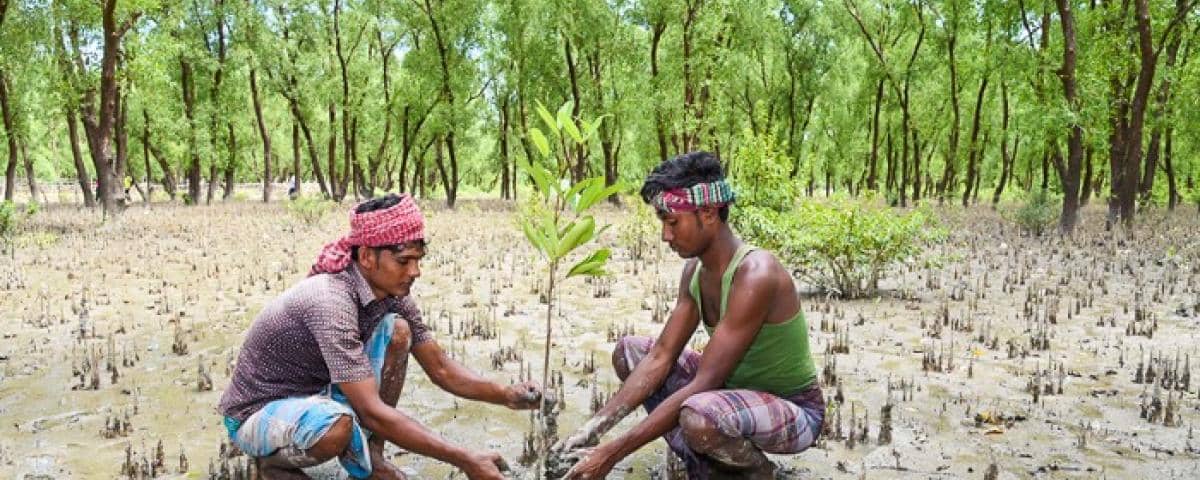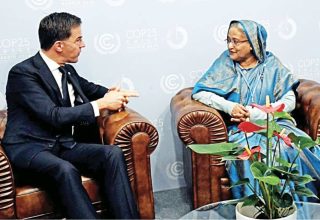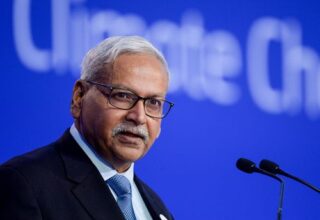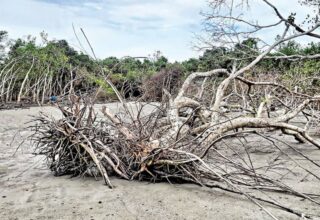
Community-based afforestation is one of the top most priorities for the coastal areas of Bangladesh.
UNDP
Two years ago, the Global Commission on Adaptation (GCA) was set up under the chairmanship of Ban Ki-moon, former Secretary General of the United Nations, and with a number of eminent individuals as Commissioners, including Dr Muhammad Musa from BRAC. The Commission was supposed to study and promote different aspects of adaptation to climate change and it was supported by the government of the Netherlands, as well as a number of other governments, including Bangladesh. After conducting a year of multiple studies and consultations around the world, the GCA came out with its flagship report called “Adapt Now: The Urgency of Action”, which identified eight areas where adaptation to climate change was needed to be accelerated. These included cities, infrastructure, water sector, food and agriculture, disaster risk reduction, nature based solutions and locally led adaptation, as well as finance.
This flagship report was presented during the Climate Action Summit held at the UN in New York in September 2019 in the presence of the Prime Minister of the Netherlands, Ban Ki-moon, Bill Gates and many of the Commissioners and heads of government, including Prime Minister Sheikh Hasina of Bangladesh. I was also fortunate to have been invited to attend as the advisor on the locally led adaptation action track.
At that meeting, the Prime Minister of the Netherlands declared a year of action to promote all the eight separate action tracks, which was supposed to culminate in a global Climate Adaptation Summit to be held in Amsterdam in October 2020.
However in view of the Covid-19 pandemic, the summit was postponed to January 25, 2021 and will now be held as a virtual event, which will begin with a high level session hosted by the Prime Minister of the Netherlands where a number of heads of government will also speak, including Prime Minister Sheikh Hasina of Bangladesh. This high level event will then be followed by a series of separate anchor events on the different action tracks over the following 24 hours. Each anchor event will be hosted by a different country. The anchor event on Locally Led Adaptation, to be held on January 26, will be hosted by Bangladesh, where Prime Minister Sheikh Hasina will open the two hour long event. Here, many speakers, including Dr Musa from BRAC, will speak about what they will be doing to promote locally led adaptation going forward.
With respect to the action track on locally led adaptation, this was initiated by Ban Ki-moon at the 6th annual Gobeshona conference held in Dhaka in January 2020, hosted by the Independent University, Bangladesh (IUB) and organised by the International Centre for Climate Change and Development (ICCCAD). Since then, there has been a well organised global effort to bring together governments, donors, UN agencies, multilateral banks, NGOs and grassroots groups who have developed a set of principles to support locally led adaptation.
The focus of the principles on locally led adaptation is to change the current top-down paradigm of targeting vulnerable communities (by governments as well as global funds and agencies) for supporting adaptation, but without the effective involvement of the vulnerable communities themselves. The new paradigm is to include the vulnerable communities in the design, implementation and even monitoring of the adaptation support to make them more effective.
This coalition of actors from all over the world are now running sessions during the 7th annual Gobeshona conference, organised by ICCCAD, taking place now as a global online event with over 90 sessions running over 24 hours, every day for seven days, ending on January 24. The outcomes from the Gobeshona conference will then be presented at the anchor event on Locally Led Adaptation of the Climate Adaptation Summit on January 26.
It is expected that this will initiate a 10 year journey towards reaching the Sustainable Development Goals (SDGs) as well as the Paris Agreement on Climate Change goals by 2030, where Bangladesh would lead the way towards achieving resilience through promotion of locally led adaptation.
If all goes according to plan, the government, the private sector, parliamentarians, academics, NGOs, youth and others in Bangladesh will collectively lead the world on the 10 year journey towards resilience through locally led adaptation to climate change.
Originally this article was published on January 20, 2021 at Daily Star. The author Prof. Saleemul Huq is the director of the International Centre for Climate Change and Development (ICCCAD) at the Independent University, Bangladesh (IUB).
Email: saleemul.huq@icccad.org






